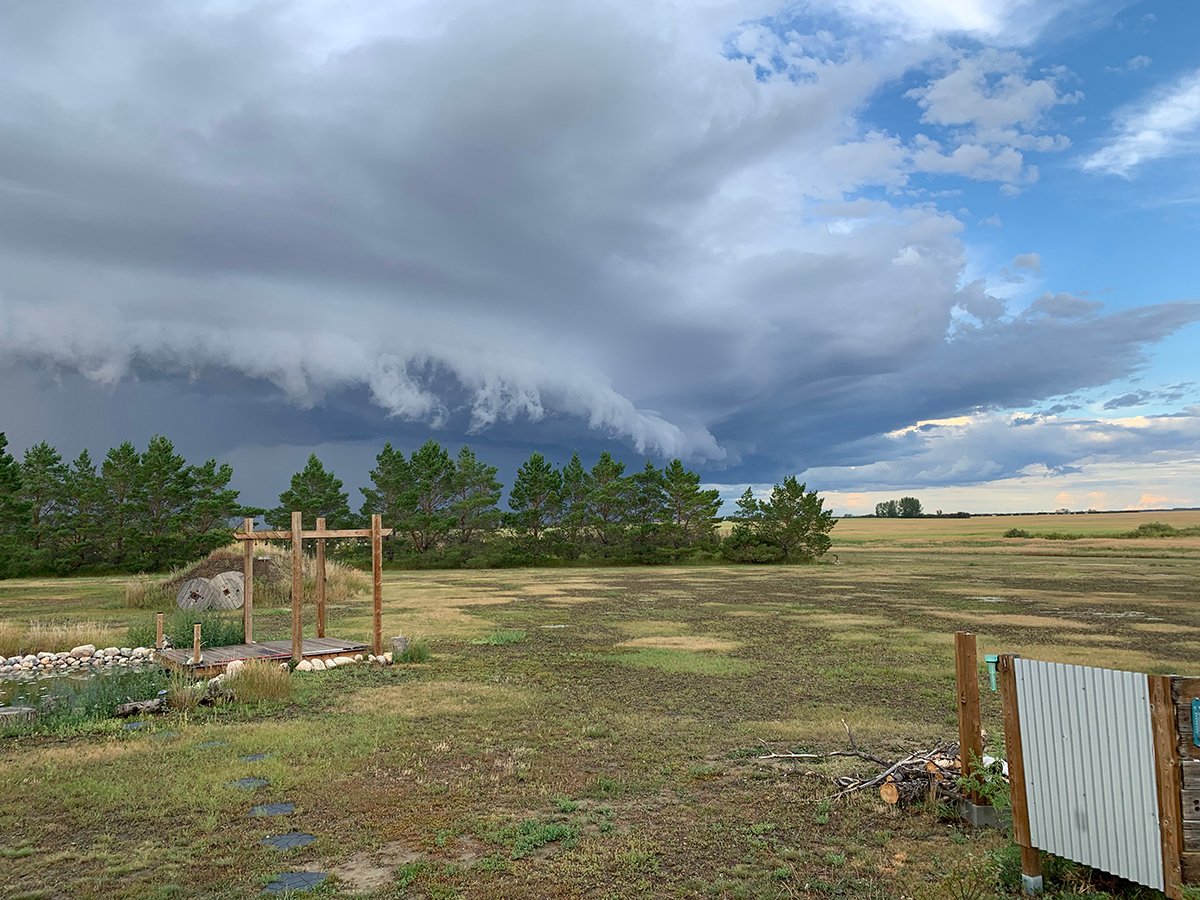The decline in southern Manitoba’s wetlands during the past four decades has serious environmental consequences for the province, a senior Ducks Unlimited official told a water conference last week.
Brian Kazmerik, national manager of Ducks Unlimited’s geographic information systems, told an Oct. 14 University of Ottawa conference on water as a human right that 21 percent of wetlands in the Broughton’s Creek watershed was lost between 1968 and 2005.
It has resulted in a 31 percent increase in nitrogen and phosphorus loading in the area and a 41 percent increase in downstream sediment loading and a sharp reduction in carbon sequestration.
Read Also

Storm dynamics and extreme rainfall
Besides moisture, instability and orographic lift, the next biggest factor that contributes to heavy or extreme rainfall is storm dynamics.
Kazmerik said increased phosphorus loading that once would have been absorbed by wetlands “is the equivalent of dumping 10 semi-loads of fertilizer into Lake Winnipeg every year.”
As well, the reduction in carbon storage is equivalent to adding 169,000 cars to Manitoba’s highways for 20 years.
He said 70 percent of wetlands have been lost in Canada’s settled areas and the impact on wildlife and the environment has been devastating.
“Wetlands are being lost in Canada at an alarming rate.”
Part of the problem, he said in an interview, is that most provinces do not have a policy on preserving wetlands.
It means there are no rules to govern the main culprits of wetland drainage – urban development and farmers.
“For a lot of farmers, it is easier to drain a wetland than to keep driving around it,” he said.
“But the consequences are serious.”
He said the problem is made worse by the fact that governments do not have a good understanding of where wetlands exist, what territory they cover and how much is lost.
Progress has been made in recent years in geographic mapping, but the information base needed for good policy is still inadequate.
“Right now, there is a big information gap,” Kazmerik said.
“I think that authorities really don’t understand the magnitude of the loss and its implications.”
He said investing in wetland rehabilitation is a major opportunity for governments
“There is a great opportunity to do something very positive for the environment, and these projects are shovel ready,” he said.
“We need an environmental stimulus package that comes with the necessary funding.”
Kazmerik ended his presentation with a quote from former Alberta premier Peter Lougheed, a strong promoter of the Alberta oil industry during his years as premier in the 1970s and 1980s.
“”The reality is,” he said last year, “that fresh water is more valuable than crude oil.”














